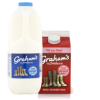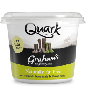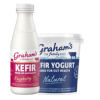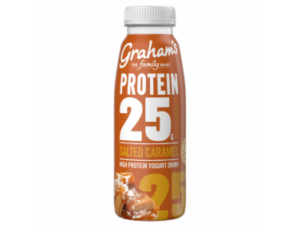
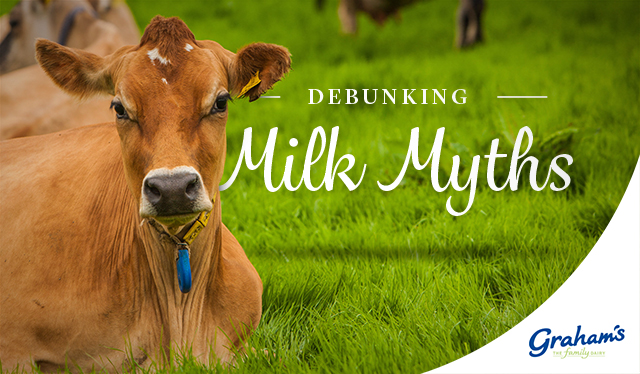
By now we’re probably all familiar with the phrase ‘fake news’ (and maybe just a little bit tired of hearing it?). Supposedly found everywhere online, it can be a real trial to get to the bottom of certain facts that are ‘doing the rounds’ – and even harder to know what to trust! We’ve noticed that recently there’s a degree of uncertainty that’s begun to creep into the dairy world too, so we thought we’d write a blog to set the record straight on a few of the most ‘milk myths’ that we’ve noticed.
Myth 1: Milk is full of sugar
Yes, milk does contain sugar, but it’s not quite as simple as that. Milk contains natural sugar. Natural sugar that’s quite different from the refined sugar that might first come to mind. Known as lactose, it’s what gives milk it’s sweet taste and is absorbed in the intestines. It’s so different from the ‘added sugars’ that rightfully take the blame for health issues like obesity that official UK nutritional guidelines outlined by the government are changing to make allowances for naturally occurring sugars in dairy products.
Myth 2: Humans can’t process cow’s milk
While it’s true that some people who are lactose intolerant might have trouble digesting dairy products, the majority of us won’t feel any adverse effects of making milk a part of a balanced diet. The British Nutrition Foundation estimate that only around 5% of us are lactose intolerant, while as the majority of us have the enzymes necessary to easily digest milk.
Myth 3: Milk’s only good for bones
While milk is great for building strong, healthy teeth and bones thanks to the amount of calcium it contains, there are other benefits to getting your daily dose of the white stuff. For one, it’s full of protein making it great for anyone looking to build or repair muscle after exercise. Milk has also been linked to heart health, having shown a reduction in cardiovascular diseases and the chance of strokes. Not only that but it’s a great source of essential nutrients like vitamin A, B12, selenium, phosphorus, magnesium and zinc amongst others. So it’s not just your bones that benefit from milk!
Myth 4: Chocolate milk comes from brown cows
Nope, sorry! Not even a drop of truth to this one (which is apparently fairly widespread)… but we’re sure you already knew that.



